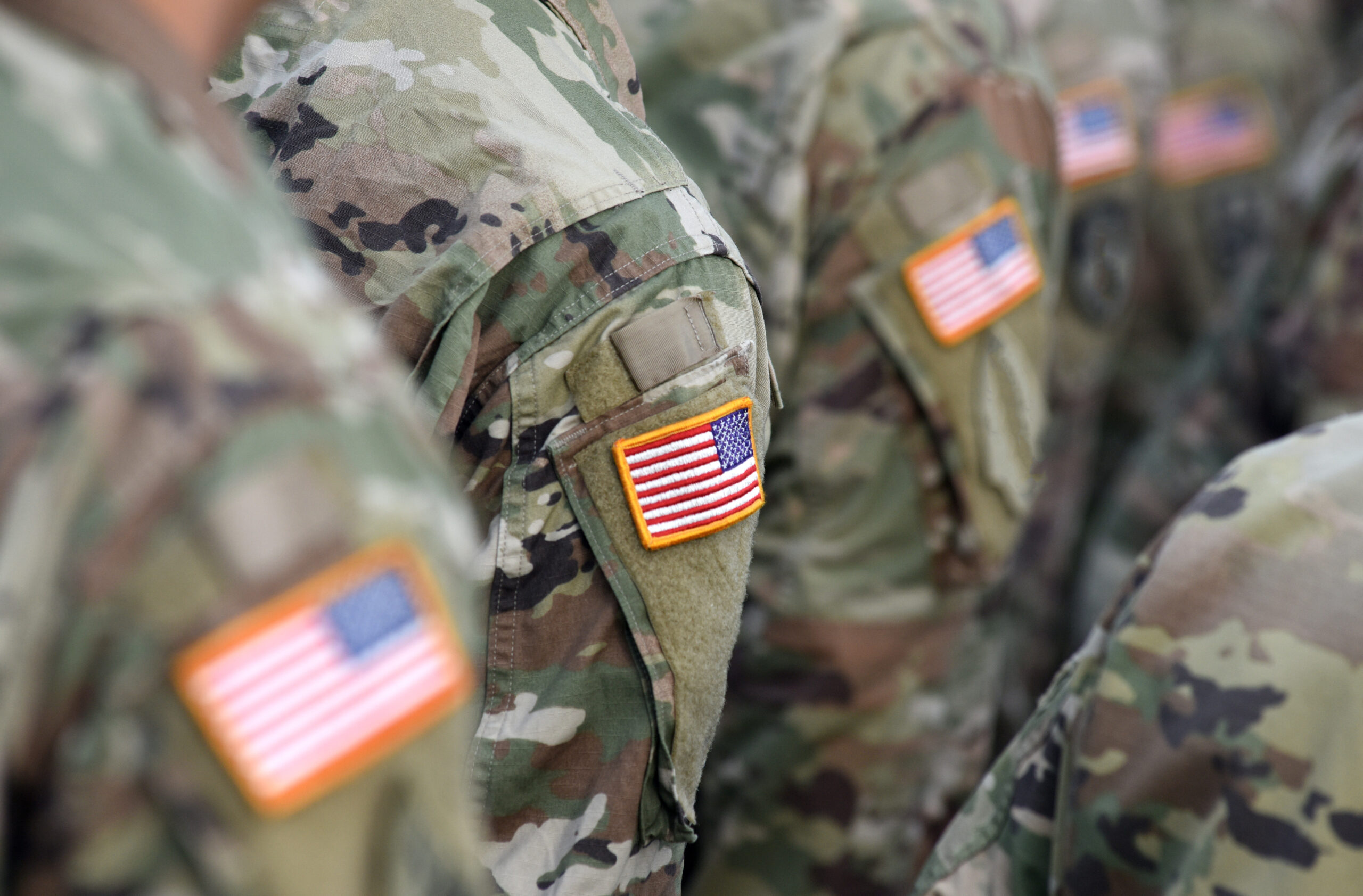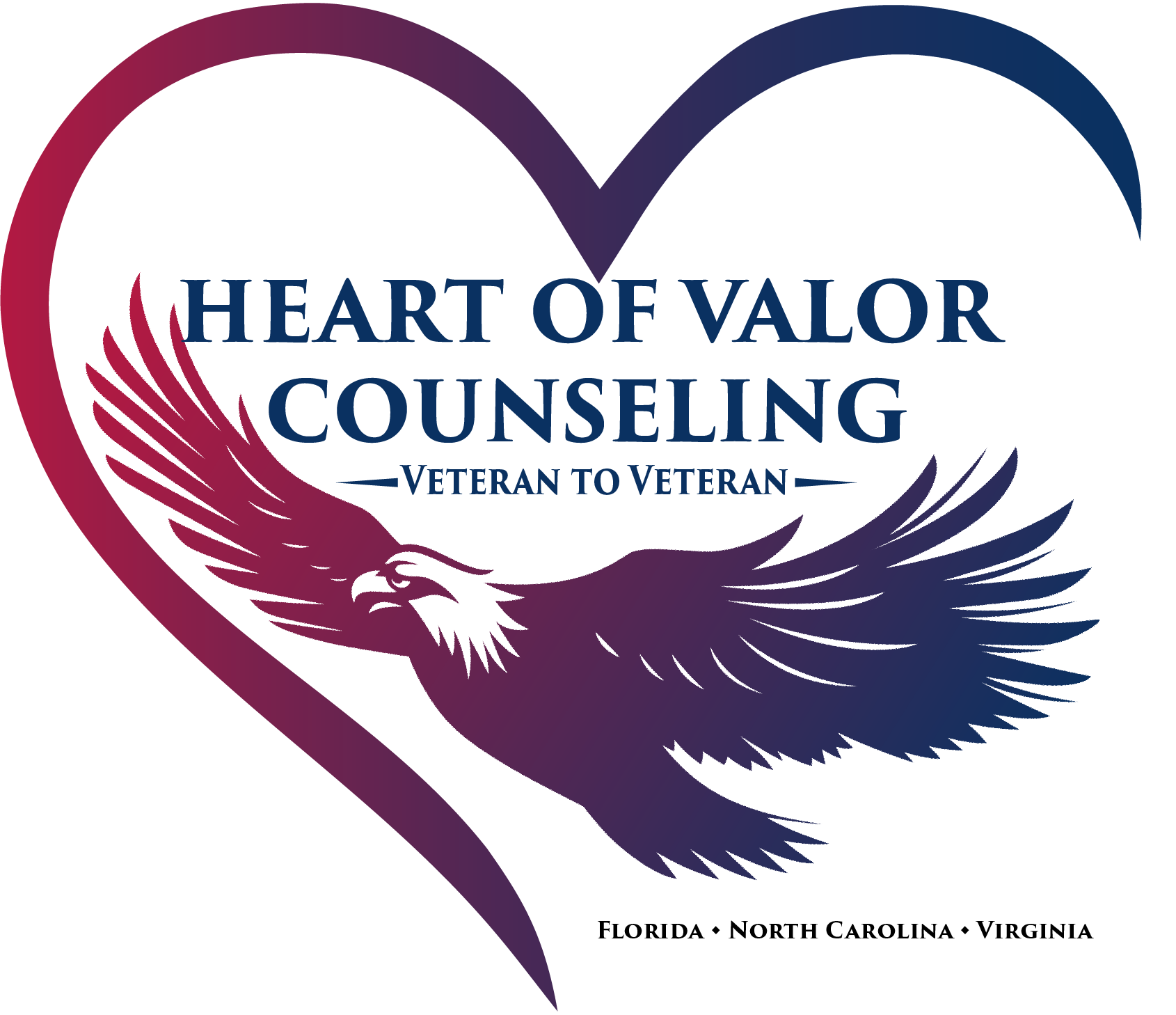![]()
Dedicated Support For Our
Military Community
Licensed Mental Health Counselor, FL #MH16207; Licensed Clinical Mental Health Counselor, NC #19374; Licensed Professional Counselor, VA #0701012289
At Heart of Valor Counseling, we understand the unique challenges faced by our military community. With a deep appreciation for the sacrifices made by our service members, veterans, and their families, we are committed to providing specialized care tailored to their specific needs. Our founder, John Cothron, a veteran himself with a 20-year military career and 10 years of experience in mental health counseling, leads our team with a profound understanding of the military lifestyle and its impact on mental well-being.
At Heart of Valor Counseling, we are honored to serve those who have served our country. We are here to support you on your journey to healing, growth, and a fulfilling life beyond the uniform. Whether you are dealing with the effects of trauma, adjusting to civilian life, or facing personal challenges, we are here to help you every step of the way.


- Culturally Competent Care: Our counseling services are designed by veterans, for veterans. We recognize the distinct culture, language, and experiences of military life, ensuring that our clients receive care from professionals who truly understand their background.
- Flexible Scheduling: We offer flexible scheduling to accommodate the demanding and unpredictable schedules of active-duty service members and veterans. Whether you need early morning, evening, or weekend appointments, we are here to work around your availability.
- Confidential Support: We provide a safe, confidential environment where military personnel can discuss their concerns without fear of judgment or repercussions. Your privacy and trust are of the utmost importance to us.
- Post-Traumatic Stress Disorder (PTSD): Exposure to combat, trauma, and high-stress situations can lead to PTSD, a condition that affects many veterans. Symptoms can include flashbacks, nightmares, anxiety, and hypervigilance, making everyday life challenging.
- Transition to Civilian Life: The shift from military to civilian life can be a difficult adjustment. Many veterans struggle with finding a new identity, employment, and a sense of purpose outside of the structured military environment.
- Family and Relationship Challenges: The demands of military life can strain relationships with spouses, children, and loved ones. Frequent relocations, deployments, and the stress of service can lead to communication issues, separation anxiety, and marital problems.
- Accelerated Resolution Therapy (ART): ART is a cutting-edge therapy that can rapidly reduce symptoms of PTSD, anxiety, and depression. By using specific eye movements and visualization techniques, ART helps clients process traumatic memories and replace them with positive images, often providing relief in just a few sessions.
- Reconsolidation of Traumatic Memories (RTM): is an evidence-based talking therapy that can help people with post-traumatic stress disorder (PTSD) by changing elements of a traumatic memory to make it less threatening. RTM is a cognitive intervention that involves briefly exposing the trauma memory at regular intervals, rather than using cognitive behavioral techniques. The goal is to update long-term memories and reduce PTSD symptoms. RTM has shown promising results in treating PTSD in military veterans. In one study, 90% of participants who underwent RTM experienced a significant decrease in symptom scale ratings, compared to 0% of controls. Treatment results were also stable for up to one year.
- Family Counseling: We offer family counseling to address the unique dynamics and challenges within military families. Our goal is to strengthen communication, foster understanding, and promote a healthy, supportive home environment.
- Career and Life Transition Coaching: For those transitioning to civilian life, we provide coaching to help with career planning, job searches, and the development of new skills, ensuring a smoother and more successful adjustment.
Post Traumatic Stress
Approximately 11-20% of veterans who served in Operations Iraqi Freedom and Enduring Freedom suffer from Post-Traumatic Stress Disorder (PTSD) in a given year, according to the U.S. Department of Veterans Affairs.
Suicide Rates
Veterans are at a higher risk of suicide, with a rate approximately 50% higher than that of the general civilian population, as reported by the VA National Suicide Data Report.
Services Utilization
Despite the need, less than 50% of returning veterans in need of mental health services actually receive them, as highlighted in a RAND Corporation study.
Depression & Anxiety
Around 20% of active-duty military personnel experience symptoms of depression, anxiety, or PTSD, with many facing barriers to seeking help, according to the National Alliance on Mental Illness (NAMI).

